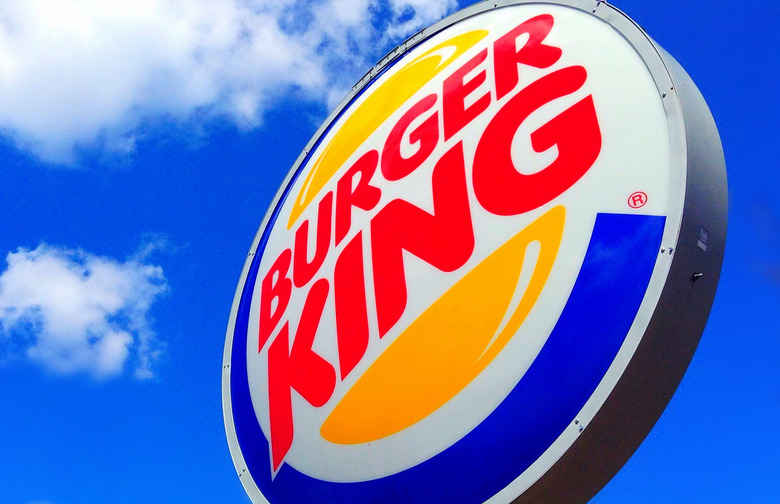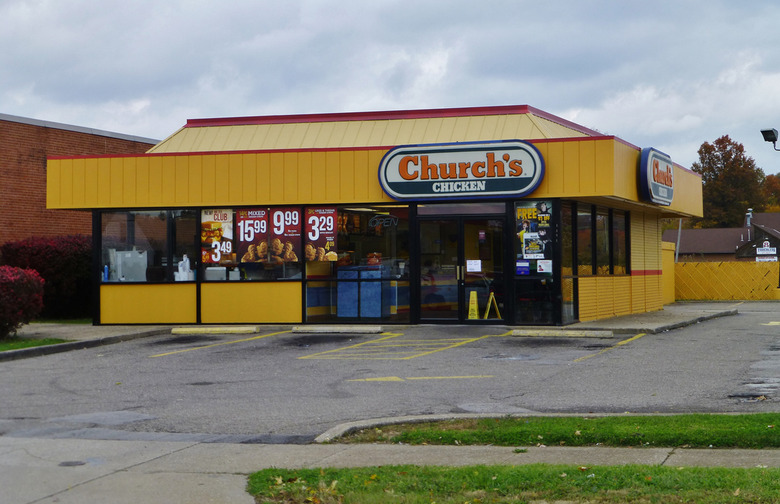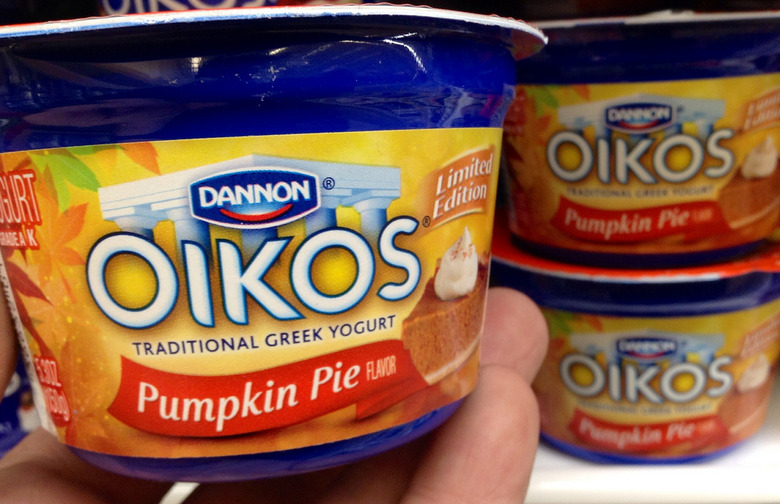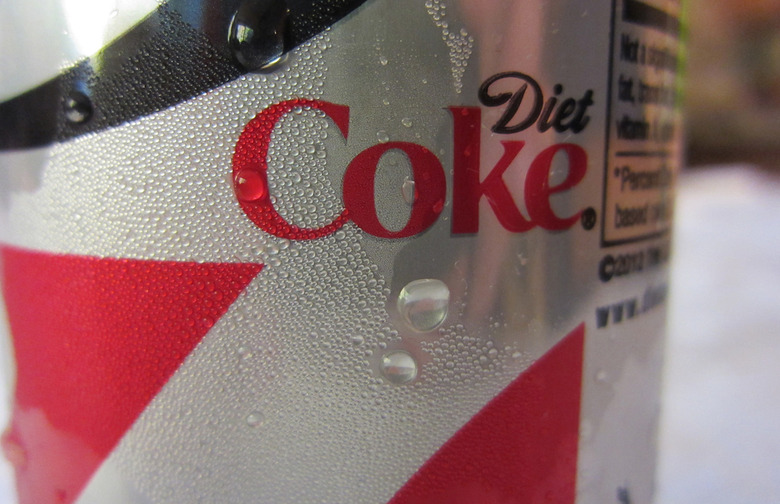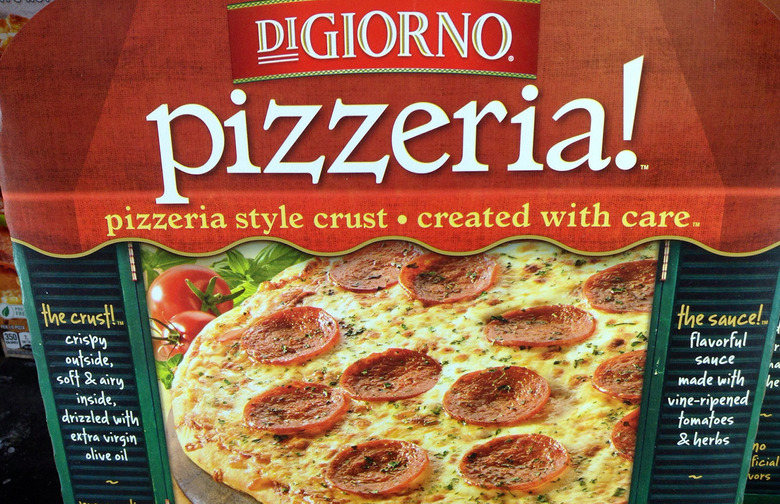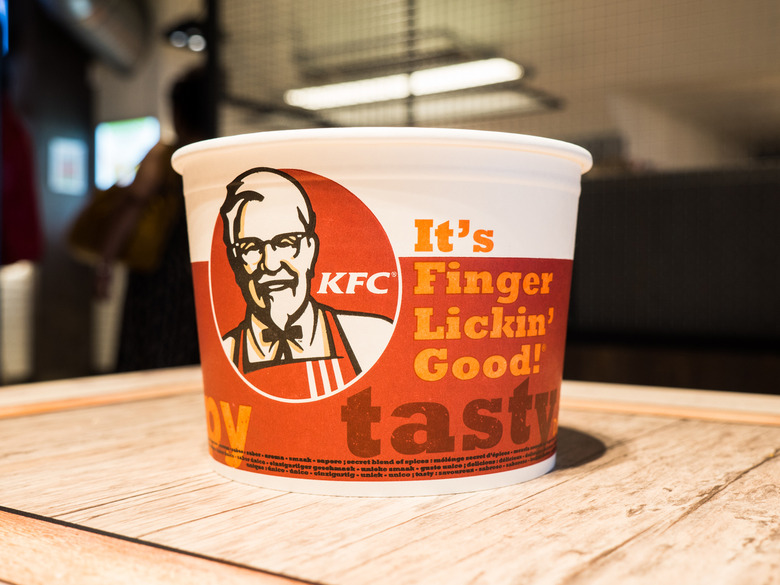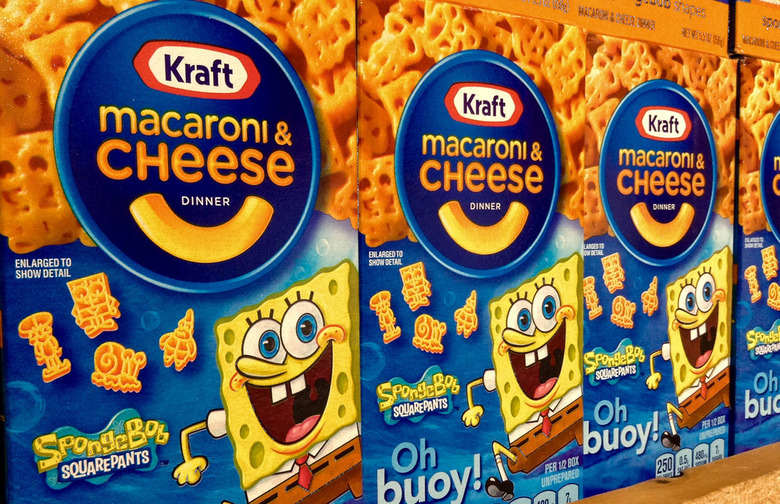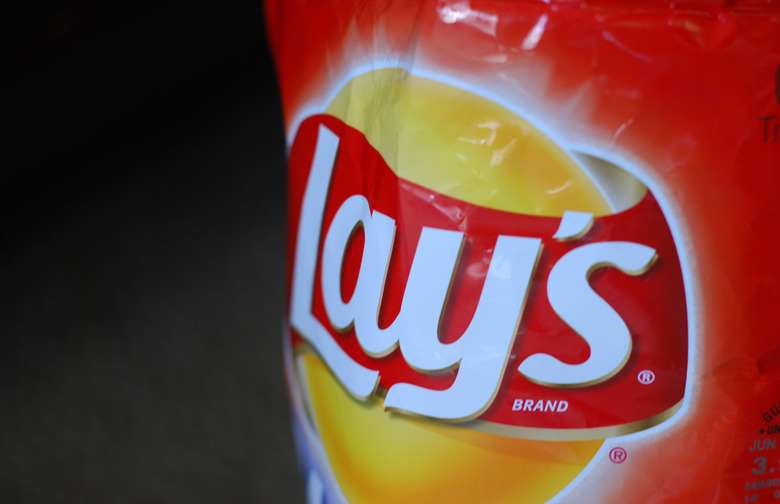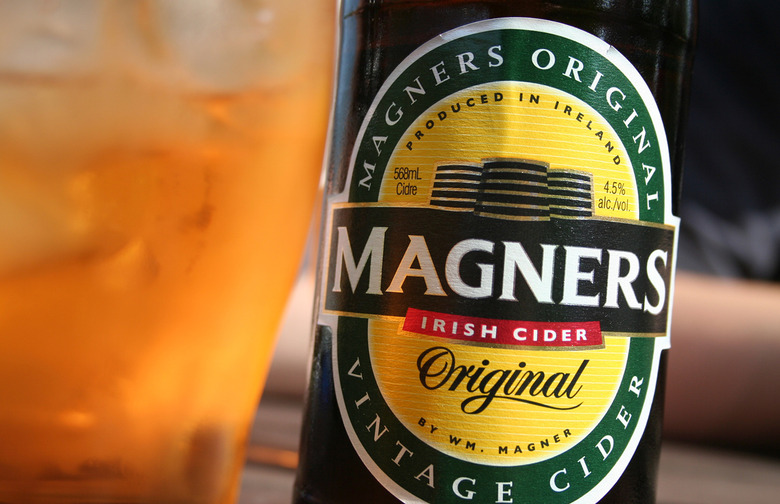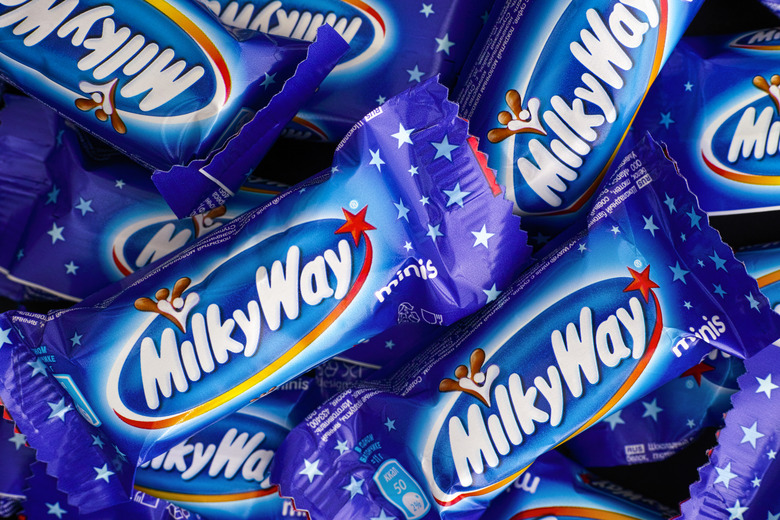10 Food And Drink Brands That Are Called Something Totally Different Abroad (Slideshow)
When fast food giant Burger King showed up in Australia back in 1971, it found out some Aussie burger joint in Adelaide had already trademarked the name, which presented an obvious problem. BK's Australian franchisee, Jack Cowin, instead decided to name the chain Hungry Jack's in his home country. Because he used the same logo as Burger King and only changed the name itself, the transition was relatively painless. By the way, if you think Hungry Jack's sounds familiar but can't place it, it's also the name of a pancake and waffle mix owned by the J.M. Smucker Company. Smucker's is the owner of Pillsbury, which actually used to own Burger King — which, in hindsight, actually makes the rebranding of Burger King as Hungry Jack's seem like a curious call.
Church’s Chicken
Church's Chicken was founded in San Antonio in 1952 by George W. Church, Sr., who named it after himself. The chain now operates 1,700 locations worldwide, but isn't known everywhere under its official name. Outside of the United States, Church's is known as "Texas Chicken," because too many foreigners associated the restaurant with the Christian religion, which would make it unpopular to followers of other faiths. This confusion popped up in Malaysia in 2015 when customers found out Texas Chicken was called Church's elsewhere, and feared that it was non-halal food. After some clarification, the issue was put to rest.
Dannon
Here's an example where Americans are the odd ones out. The popular yogurt company known as Dannon in the United States is actually known by their French name, Danone, to the rest of the world. This is due to the fact that when Danone moved to America in the '40s, everyone called it "Dan One," and this annoyed the company. Interestingly, Danone is actually named after the nickname of Daniel Carasso, the son of the company's founder, Isaac Carasso — so the mispronounced brand name, "Dan One," wasn't exactly that far off.
Diet Coke
This one's a bit tricky. Although Coca-Cola's Diet Coke variety has an equivalent-looking soda abroad, called Coke Light, it doesn't actually contain the exact same ingredients, as the sweeteners in Coke's lower calorie options vary from country to country. Yes, it still serves the same purpose, but Coke nevertheless didn't want to use the same name for slightly different product. (On a personal note, while living in Europe I found that Coke Light tasted quite odd compared to Diet Coke, and that Europe's version of Coke Zero was actually a lot closer to true Diet Coke. However, I would not drink America's Coke Zero, because it's too different from Europe's Coke Zero, and doesn't taste like Diet Coke either. Got all that?)
DiGiorno
It's not delivery, it's DiGiorno — unless you're in Canada. Then it's called Delisso, and it's the exact same thing, and even uses (almost) the same slogan. The reasoning behind this confusion is a bit unclear, but it's likely due to the fact that the DiGiorno brand (previously owned by Kraft) originally made a successful line of pastas and sauces before turning to pizza, which was marketed as a new, better-than-average frozen option in the states. However, when the DiGiorno product expanded into Canada soon afterward, in 1999, it decided to use the name Delisso, which Kraft had previously used for frozen pizzas back in the 1980s. So, in a nutshell, when it came to Americans and their short attention spans, Kraft came up with a new name; but in Canada, it decided to go with something familiar. In case you were wondering, DiGiorno is now owned by Nestlé.
KFC
Canada has some pretty strict language laws, including one that says foreign companies are required to use the French equivalent of their name in some regions. So when KFC showed up in Canada, it needed to use a translated version of Kentucky Fried Chicken, which ended up being "Poulet Frit Kentucky." That still seems pretty close, and with the bright red restaurants adorned with Colonel Sanders' smiling face, there's not much confusion, but it's still very odd to see the letters "PFK" prominently displayed at each restaurant — almost as if it's just a very clever knock-off. Interestingly, in France, KFC is still called KFC.
Kraft Macaroni & Cheese
Considering the fact that Kraft Macaroni & Cheese is often marketed to kids as Kraft Cheese & Macaroni to sound more appealing (because kids are smart and know that cheese is better than pasta), when I heard the same product was called "Kraft Dinner" in Canada, I figured it's because it was harder to convince Canadians that boxed pasta with fluorescent, yellow-orange, powdered cheese was, in fact, a meal. But in reality, the situation is quite the opposite. Apparently, it was actually originally called Kraft Dinner across the board, and was only changed in other places (such as Australia and the U.K., in addition to the U.S.) because people looked at the boxes and said, 'What the heck is that stuff?' and needed a clearer name for marketing. Meanwhile, Canadians just ate it up and considered naming it their national food.
Lay’s
Lay's potato chips have been around since 1932 and seen a lot of changes in their 84-year history. In addition to merging with Fritos to form Frito-Lay Inc. in 1961 and Pepsi-Cola in 1965 to form PepsiCo, Inc., Lay's has also bought a large number of its foreign competitors. In almost all these cases, Lay's decided to continue marketing the newly-acquired brands' products under their respective foreign names, while also selling classic Lay's varieties and flavors (like Fritos, Cheetos, Doritos, and Ruffles) under the newly-acquired-company's name. Thus, if you're searching for any of these Lay's-owned snacks abroad, you'll have to look for Walkers in the U.K., Smith's in Australia, Sabritas in Mexico, Margarita in Colombia, Elma Chips in Brazil, Tapuchips in Israel, Poca in Vietnam, Sensation by MazMaz in Iran, and a number of alternatives in other countries.
Betcha can't have just one name.
Magners
With the rising popularity of hard ciders in America and around the world, Magners Irish Cider has become an increasingly recognizable brand — except of course in Ireland, where it indeed hails from, and is instead called Bulmers Irish Cider. This is because Magners was, in fact, originally called Magners before being bought by English cider-maker H.P. Bulmer in 1937 (who changed the name), and later C&C Group in 1999. However, during the last sale, Bulmer retained the international rights to the name Bulmer's, so C&C had to change the name when it starting selling the cider abroad. It chose to go back to the original name, Magner's.
Milky Way (and 3 Musketeers)
Picture this: You're in Europe, your sweet tooth is acting up, and you're craving a chocolate bar filled with nougat and caramel — so you reach for a Milky Way, which happens to come in a blue wrapper unlike the usual brown one found in the states. This isn't an issue, except when you bite into it, there's no caramel! It's basically just a 3 Musketeers bar, which doesn't exist in Europe by that name. You might think you're out of lucky, but a chocolate/caramel/nougat bar does, in fact, exist in Europe — but it's called a Mars Bar. But don't buy a Mars Bar in America, because it has nuts in addition to the caramel and nougat, and is a lot closer to a Snickers — or, more specifically, the new-ish Snickers Almond. For the record, Snickers are available as Snickers abroad, but used to be called Marathon bars, which elsewhere refers to a caramel-and-chocolate bar now called a Curly Wurly. For Americans traveling abroad, let's recap: 3 Musketeers are called Milky Ways and Milky Ways are called Mars Bars, even though Mars Bars are like Snickers, which used to be called a Marathon, even though a Marathon is now a Curly Wurly. You may now eat your candy.
